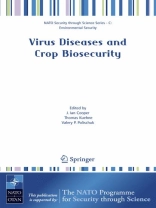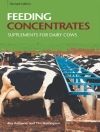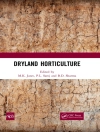Without sensationalizing or providing technical details that would result in a terrorist’s handbook, this volume reflects concerns expressed by experts from 12 states. The book is exceptional because of its focus on indirect impacts on human health and welfare through challenge to the security of food. These urgently need to be recognised and steps taken to counter the threat. The need for protection is weighed against risks of discouraging biotechnological advance.
Jadual kandungan
Preface. A short History of Warfare Emphasising the biological Aspects; D.J. Osborne.- Crop Viruses and Virus Diseases: A Global Perspective; J.M. Thresh.- Plant Viruses in European Agriculture: Current Problems and Future Aspects; R.A.A. Van der Vlugt.- Significant Ways to spread Plant Virus Diseases in agricultural Ecosystems: Is Agroterrorism possible?; G. Adam.- Soil-borne Viruses of Crop Plants – Potential Agents for bioterrorist Attacks?; T. Kühne.- Genomic Approaches in Virus Diagnostics: A personal Assessment of Realities when faced with Viruses in a Plant Biosecurity Context; J.I. Cooper.- Molecular Methods for Detection and Quantitation of Viruses in Aphids; M. Cambra.- The Use of monoclonal Antibodies in Plant Protection and for Studying Virus-induced pathogenic Processes; T. Erokhina.- Identification of Plant Host Factors interacting with Viruses: Novel Targets for Virus Control; M. Taliansky.- Current View on Host Components involved in Plant Virus intercellular Trafficking; S. Morozov.- Abiotic environmental Factors: Effects on Epidemiology of Plant Virus Infections; V. Polischuk.- Somaclonal Variation as a Source of Tomato Spotted Wilt Virus-Resistance in Plants; I.S. Shcherbatenko.- List of contributors.- Index.












